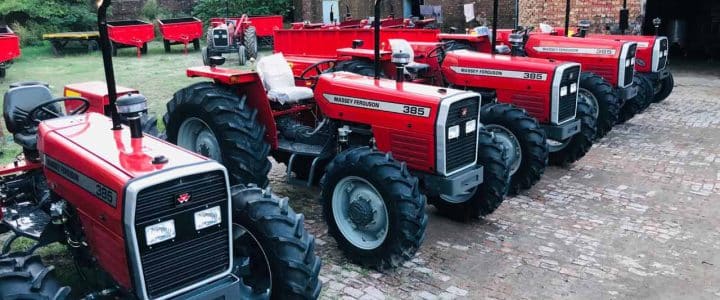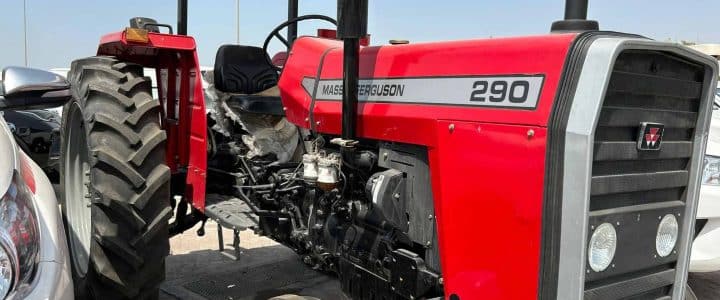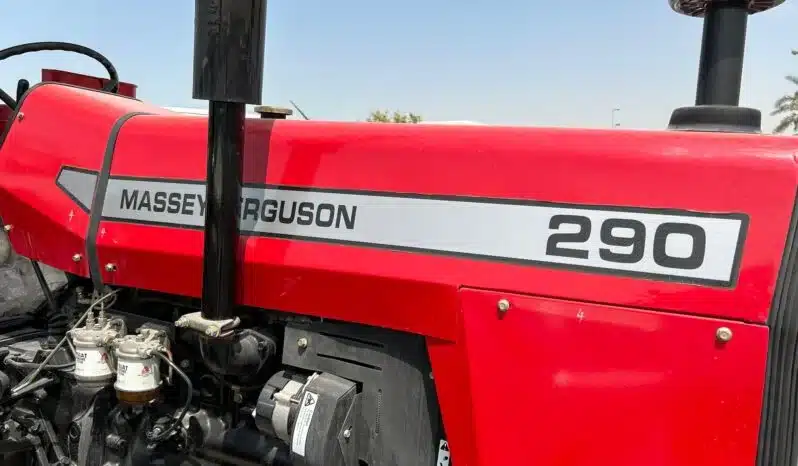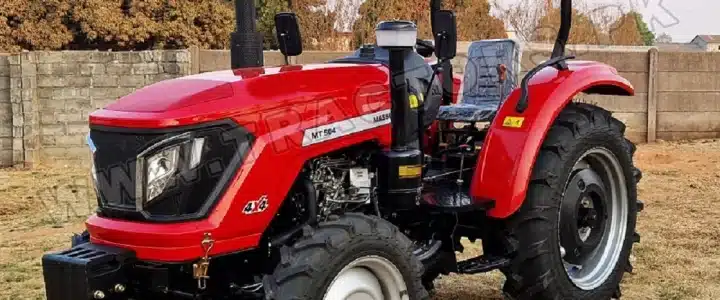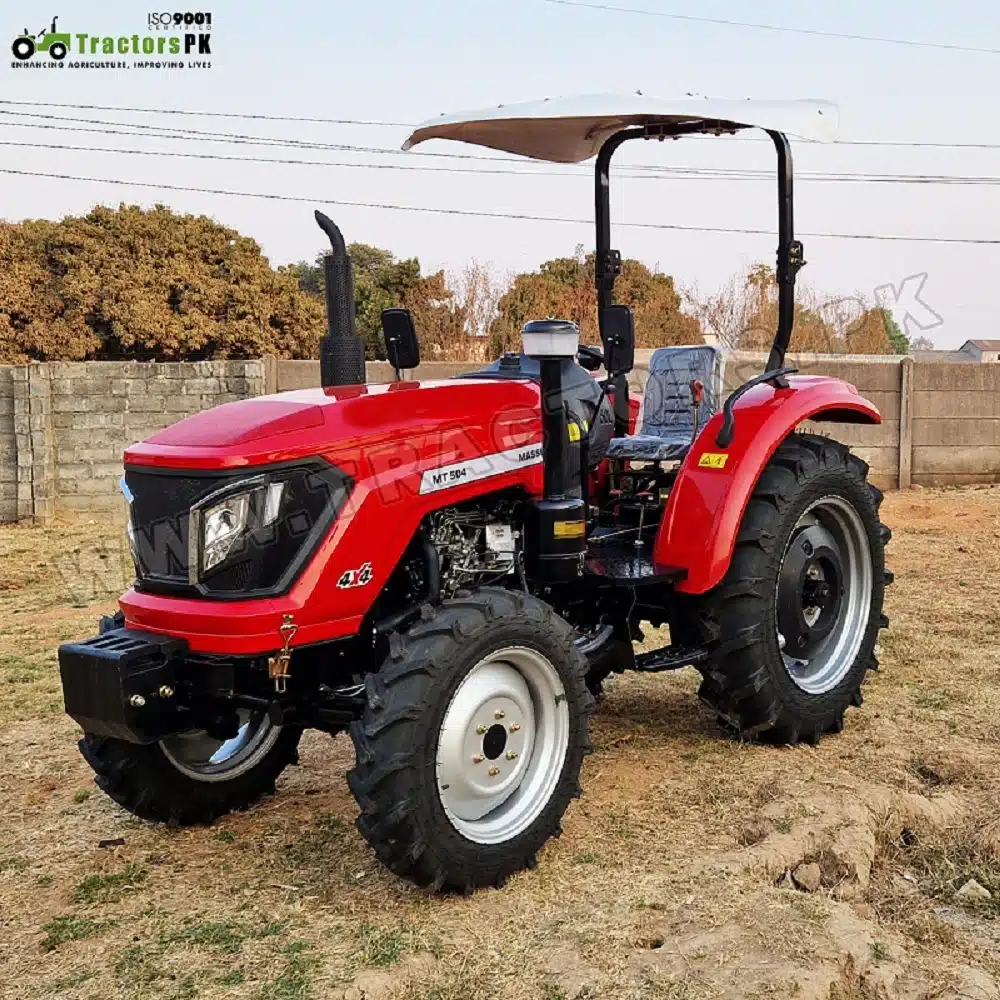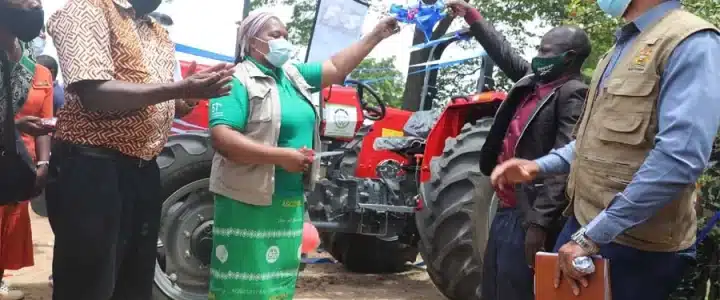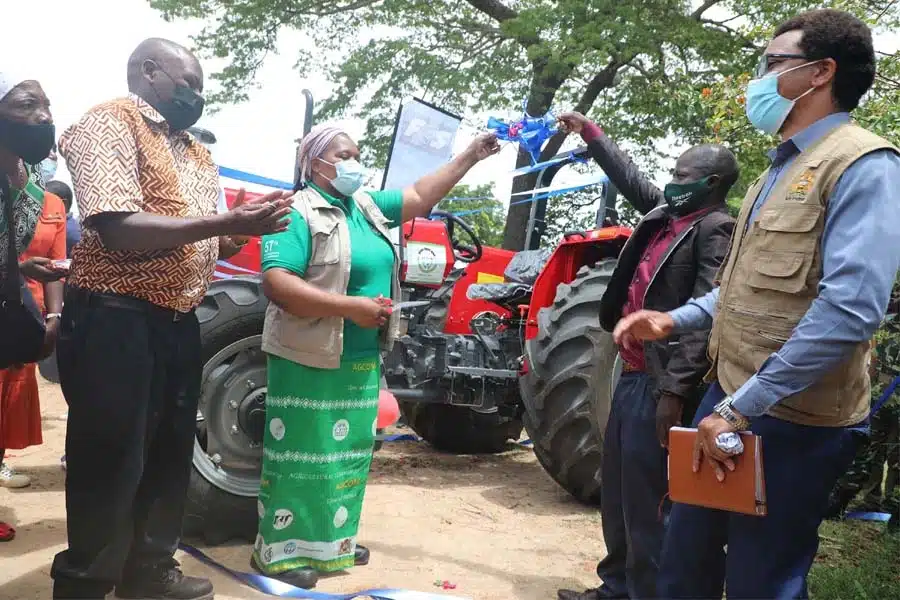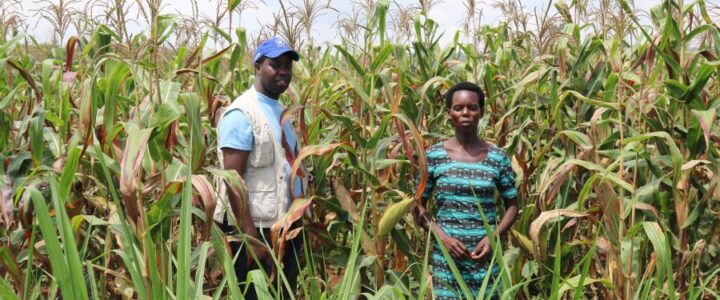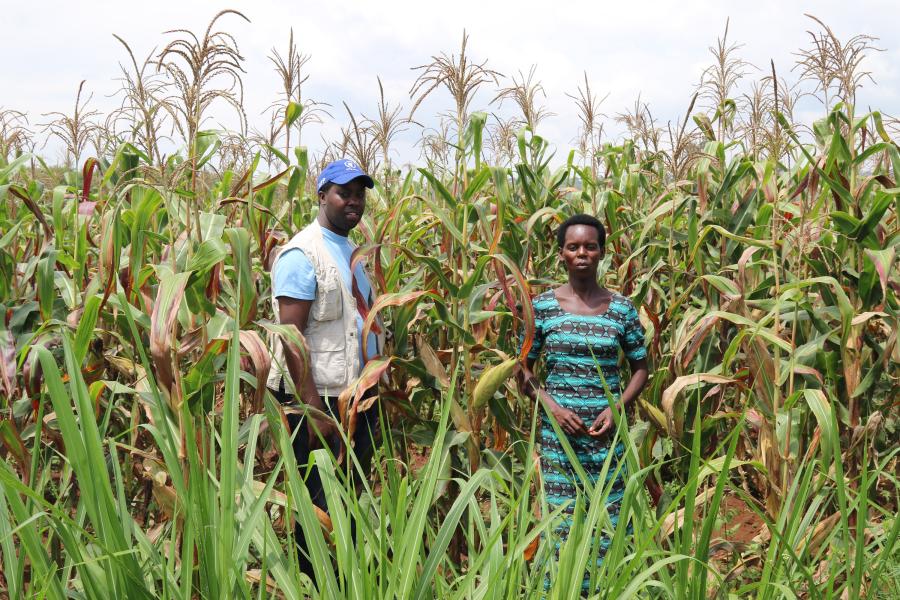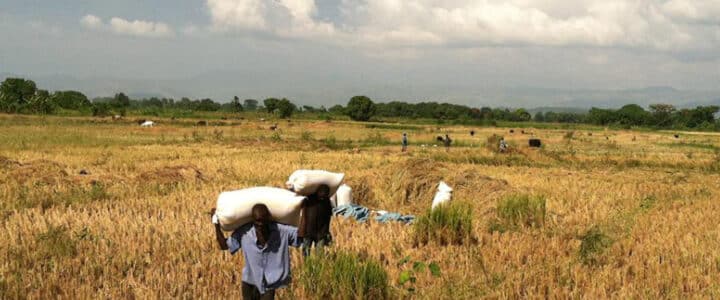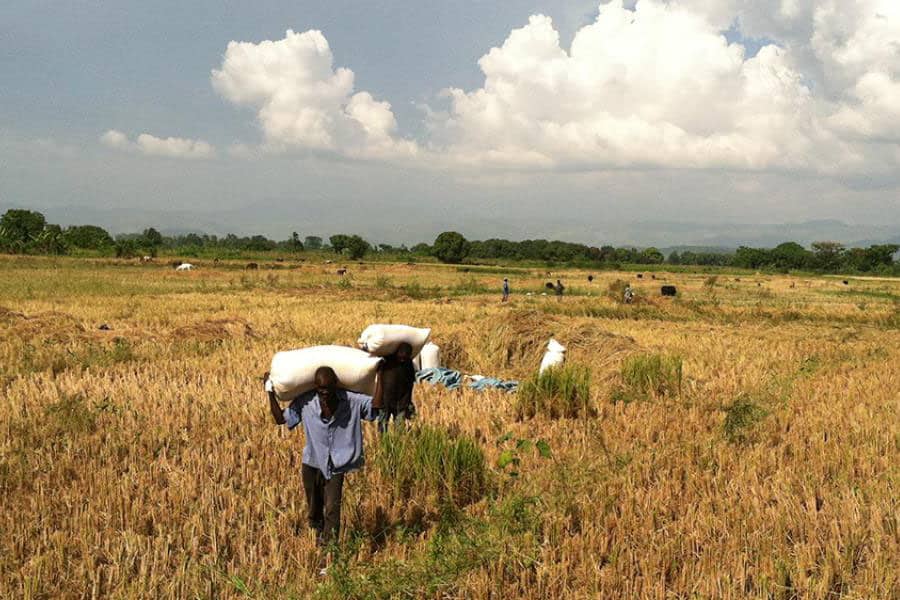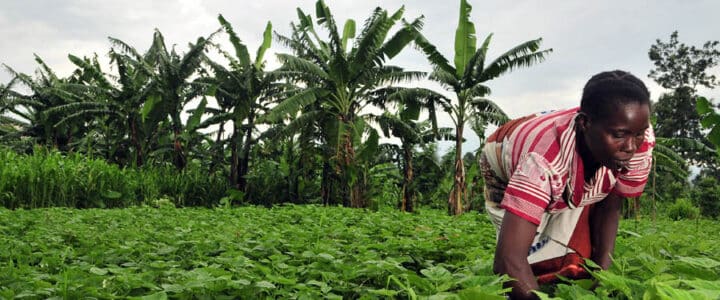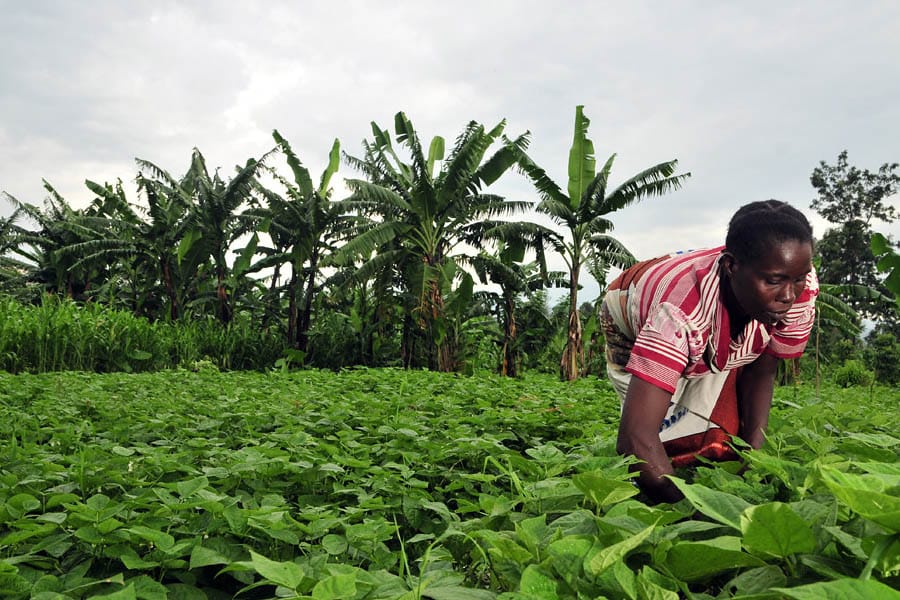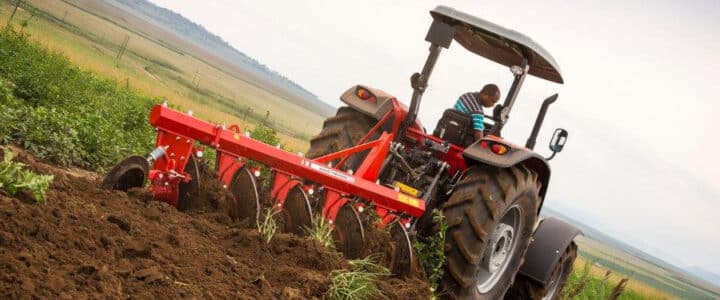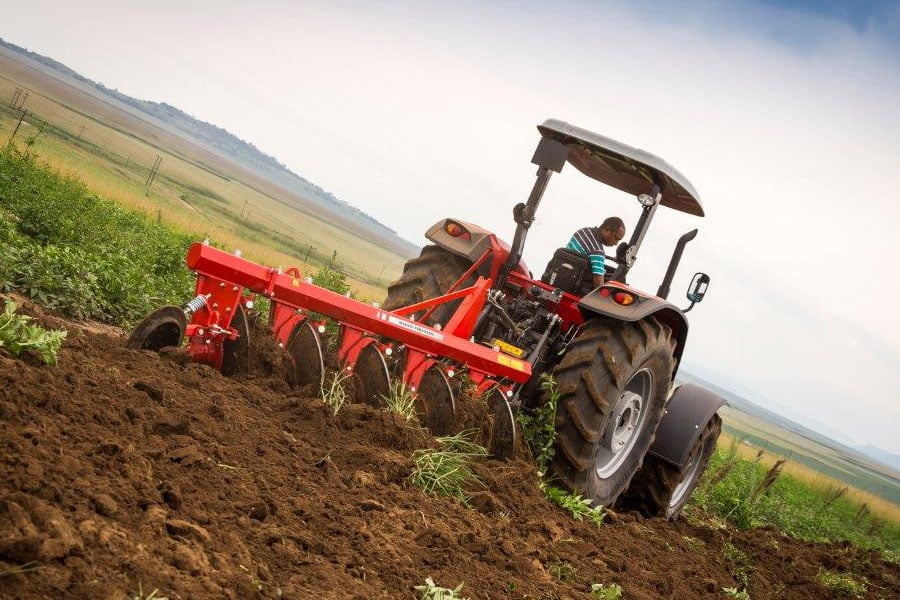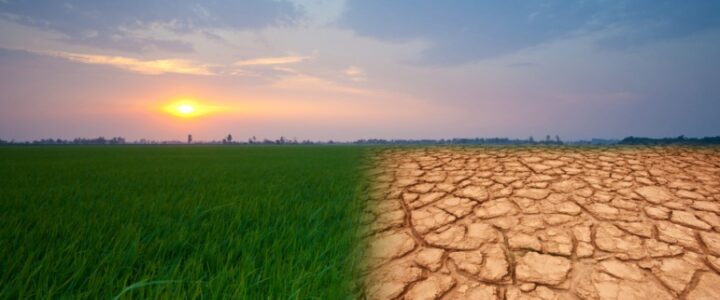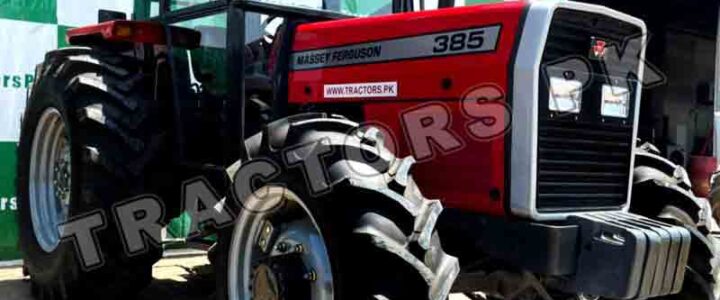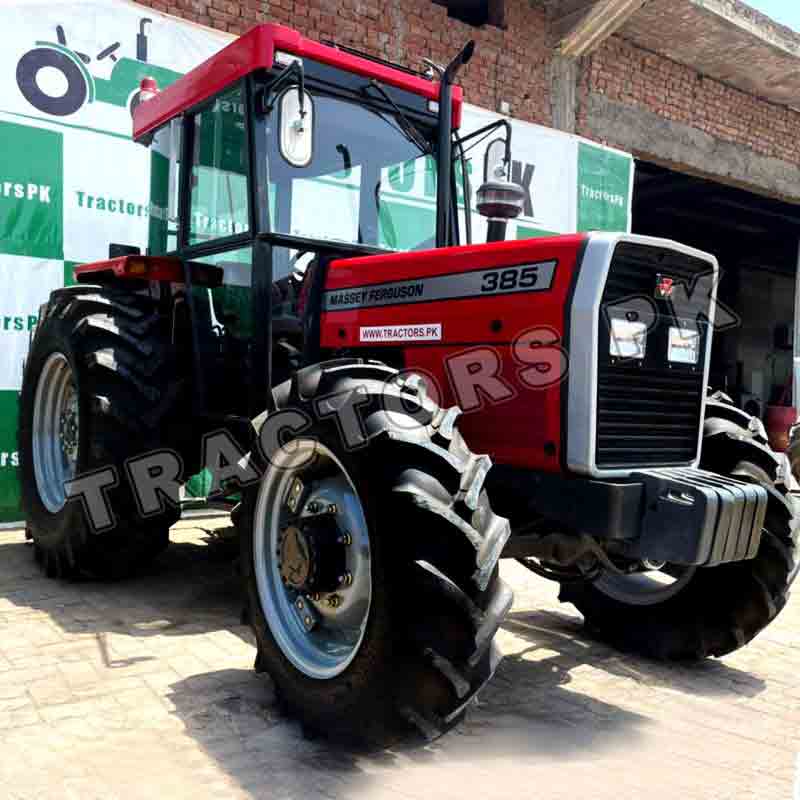Massey Ferguson MF 385 4WD tractor stands as a reliable workhorse in agricultural settings, earning a solid reputation for its performance and efficiency. With its robust construction and advanced features, this tractor is especially well-suited for the unique agricultural challenges in South Sudan. Farmers and landowners seeking dependable equipment often turn to trusted suppliers such as Tractors PK, recognized for their quality products and reliable service.
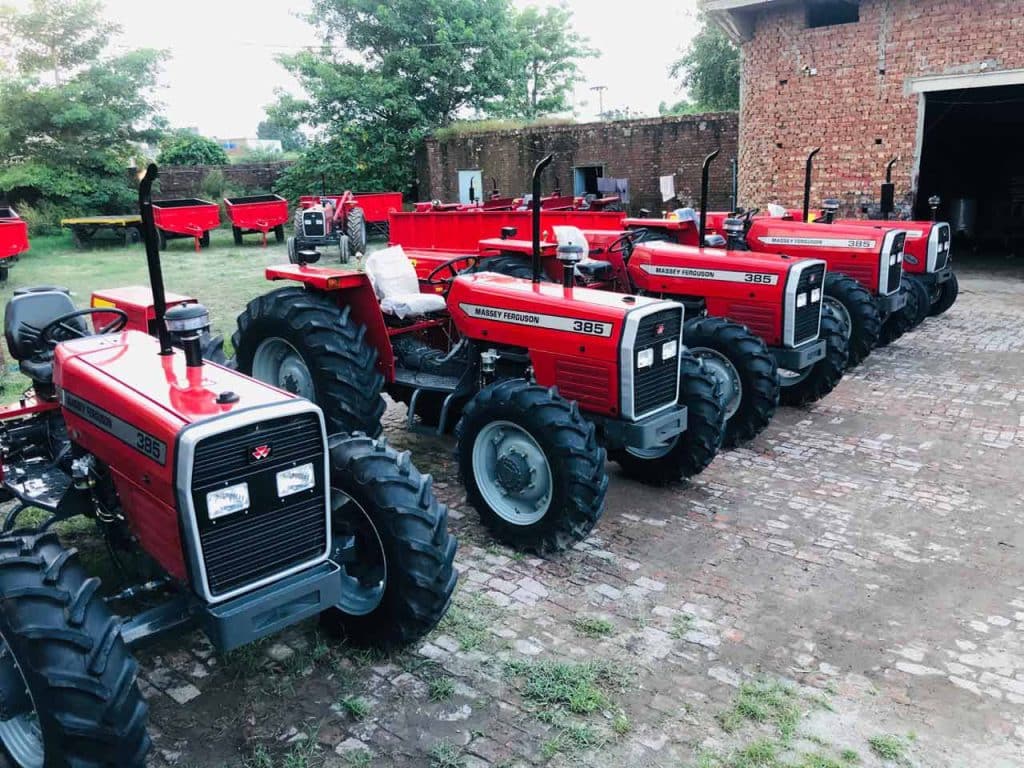
Powerful Performance for South Sudan’s Agriculture
MF 385 4WD is equipped with a powerful, fuel-efficient 85-horsepower diesel engine, capable of handling a variety of tasks with ease. Its 4×4 capability provides exceptional traction, making it ideal for ploughing, hauling, and other demanding activities across different terrains. South Sudan’s agricultural landscape often includes uneven or muddy fields, and the MF 385 4WD’s four-wheel drive ensures smooth operations even in challenging conditions.
Additionally, the tractor features a hydro-static power steering system, which reduces operator fatigue and enhances manoeuvrability. This is particularly useful for precision farming tasks, helping farmers maximise productivity with minimal effort.
Durability and Cost-Effectiveness
When investing in agricultural equipment, durability is a crucial factor for farmers in South Sudan. The Massey Ferguson MF 385 4WD is built to last, with a heavy-duty chassis and premium materials designed to withstand years of rigorous use. Its low fuel consumption and efficient performance also make it a cost-effective choice. Farmers can minimize operational costs while boosting yields, creating a compelling return on investment.
For those concerned about long-term upkeep, the MF 385 4WD offers ease of maintenance with readily available spare parts and simple servicing requirements. With its practical design, even rural farmers who have limited access to advanced services can maintain the tractor effectively.
Versatility for Multiple Farming Needs
The MF 385 4WD is highly versatile, handling everything from soil preparation to crop transportation with ease. It is compatible with a wide range of implements, including cultivators, ploughs, seeders, trailers, and loaders, making it an invaluable asset for South Sudan’s diverse farming activities. This adaptability ensures that both small-scale farmers and large agricultural operations reap the benefits of increased productivity.
Tractors PK – A Trusted Supplier for South Sudan
Farmers looking for tractors for sale in South Sudan often turn to trusted suppliers, and Tractors PK stands out as a leading name in the market. Known for providing high-quality Massey Ferguson tractors, including the 4×4 MF 385 4WD, Tractors PK ensures a seamless purchasing experience. Their range of products, coupled with their efficient delivery system, has made them a preferred choice for farmers seeking tractor dealers in South Sudan. Whether you’re expanding your farming operations or upgrading old equipment, Tractors PK offers reliable options tailored to local agricultural needs.
Why Choose the MF 385 4WD for South Sudan?
South Sudan’s agricultural sector is its backbone, and machines like the MF 385 4WD contribute significantly to its success. The tractor’s exceptional combination of power, durability, and versatility addresses the daily challenges faced by farmers. Its ability to consistently perform in demanding conditions helps ensure better harvests and enhances overall farm productivity. For farmers seeking tractors for sale in South Sudan, this model represents a smart investment in long-term agricultural success.
By partnering with trusted suppliers such as ours, farmers gain access to premium equipment and dependable customer support, ensuring they have the tools needed to succeed.
